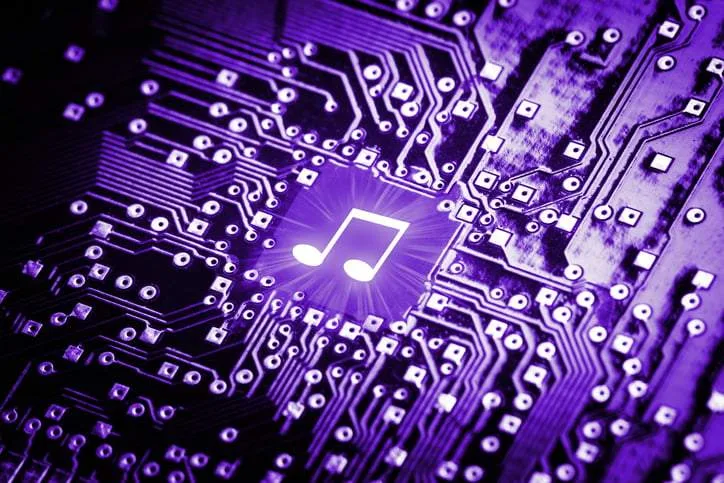Digital music technology encompasses computers, digital musical instruments, computer-based software, digital audio workstations by a musician, engineer, sound technician, DJ, or band member to create, perform, record or edit music. The word’music’ is used broadly to describe any of these methods. Music has had a huge influence on our culture and the way we live. In the past, music was used as a medium of communication. Now it has become a powerful entertainment tool as well.
Audio equipment includes speakers, headphones, amplifiers, tape players, computer software, and soundboards. Audio technology also encompasses computer software such as recording software and synthesizers. Computer programs include computer software synthesizers. Other devices that enhance audio include tape machines, sequencers (digital and analog), computer-based sequencers, record and play back facilities, digital and analog audio interface, microphone/amps, and headphones.
Audio Engineers
Audio engineers are involved in a wide range of activities. They include the audio technicians that handle sound and music through various mediums like recording, playback and mixing, recording and mastering, and transcription. Music technology therefore, encompasses a wide range of tasks and professions. These audio technicians can be found in every type and size of music studio.
Computer based audio software and hardware are used to make digital audio recordings. The audio engineer composes, mixes and transfers music electronically using specialized software. The most common types of digital audio workstations include desktop recording, the audio interface (live), direct to tape (DAT) and computer-based recording and editing. Digital audio workstations and hardware provide the ability to record, edit, and play music digitally via standard PC computer applications.
Audio Technicans
Audio technicians are also involved in the art of mastering. Mastering involves high levels of audio quality and consistency. It is the final step before the music is available for public release. Audio mastering involves meticulous attention to detail in the music and sound recording process, from the recording itself, to the auditions of the performers and song arrangers. Audio mastering artists are highly skilled and trained professionals who will work with the band or group to ensure that the final master disc bears only the best possible outcome.
Digital audio engineers
Digital audio engineers use state of the art equipment and techniques in the audio engineering business. These techniques include signal processing, mastering, and music arrangement. Their primary goal is to help musicians create and refine their sound on the recording. As technology advances, digital sound recording techniques become more advanced, resulting in more impressive music than ever before.
Music recording
Music recording and editing techniques are constantly advancing to improve the quality of sound, and to influence the audience experience. This is an extremely important aspect of the music industry. Technological progress has had a significant impact on the way engineers and other recording technicians work. Engineers are no longer limited to four-track tape machines and traditional sampling methods. Today’s equipment can offer better image and sound reproduction, resulting in better-sounding music, and more impressive performances.
With the increasing popularity of concerts and recording albums, artists are also turning to the use of live entertainment. Music technology and live entertainment go hand-in-hand to create a memorable concert experience. Live music shows rely on powerful speakers and excellent sound systems to provide an exciting and enjoyable experience for concert attendees. Music engineers are an integral part of every live music show.
Audio Technicians
Audio technicians are needed not only to perform as performers on stage but also to conduct procedures such as sound checks, setup, and break down. Technicians are the people who handle and set up audio system and video display systems. They operate amplifiers and monitors, set up the stage, and keep an eye on proceedings. Audio technicians often work closely with stage technicians, and sometimes perform other duties as well.
Old music and audio technology
In the past, engineers worked exclusively with recorded media, which consisted mainly of CDs and DVDs. Advancements in modern music technology have allowed engineers to create and mix recordings using a wide range of computer programs. The main advantage of computer-based music technology is that engineers can design and create sound systems that accurately replicate what would be heard in real life. Additionally, modern equipment allows for easy transfer of audio to other devices, such as laptops and other portable media players.
Engineers still perform a number of duties within a recording studio environment. For instance, engineers may be responsible for running the equipment, maintaining it, and cleaning it after use. Some engineers may also be required to make necessary repairs or adjustments to the equipment, and listen to feedback from every angle in order to balance the final product. Regardless of their role in the entire production, music technology engineers are integral members of the music industry
Digital Music
A digital music player is usually an mp3 device which will play MP3 digital music files. It’s a kind of portable media player, or digital audio player. Most players also play other than the MP3 file type, including Windows Media Audio, Advanced Audio Coding (AAC), Vorbis, FLAC and Ogg. These devices will also sometimes come equipped with other features such as a tuner, CD changer, or a USB drive.
Most digital music players use batteries to operate. The most common type used is the lithium ion battery which delivers an accurate sound and long lasting hours of playing time. Other choices are nickel metal hydride, lithium ion and premium lithium ion batteries. Some devices even feature an in-built memory to store song titles and to retain long play lists.
Digital music players are often quite small and easy to carry. They’re especially popular among the portable music enthusiasts who like to bring their devices with them on trips, vacations and concerts. In contrast to traditional or analog players, devices play digital music files through transducers which convert signals sent by speakers or headphones to electronic signals which are then amplified by speakers. Digital playback engines are used to increase the quality of sound and eliminate static, although some devices do have over-the-top playback engines.







